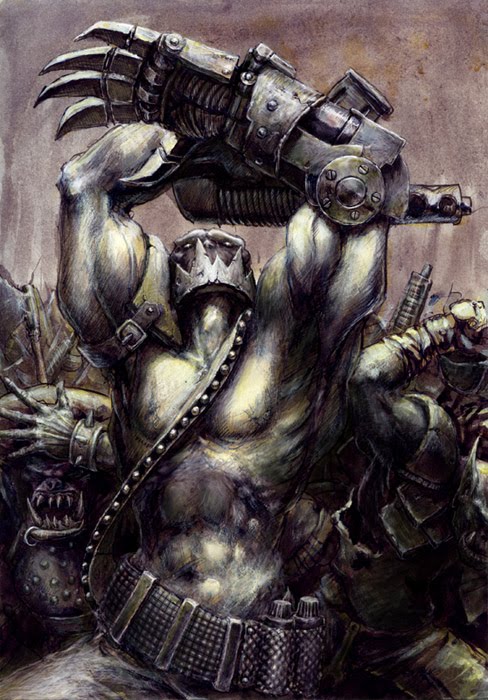S 1959: Thought Crime Prevention Act of 2007
www.bloggernews.net
December 3rd, 2007 by Jen Clark
Eight years ago, I never imagined the Thought Crime1 Prevention Act of 2007 (referred to by the government as the Violent Radicalization and Homegrown Terrorism Prevention Act of 2007) as being possible in the United States of America. Unfortunately, it is here and it has already passed one of the branches of Congress with shocking and overwhelming approval. The Thought Crime1 Prevention Act of 2007 passed the House of Representatives (as HR 1955) on October 23, 2007 with a vote of 404-6. The Senate version of the Thought Crime1 Prevention Act of 2007, S. 1959, is now waiting for action.
The Thought Crime1 Prevention Act of 2007 is how the Bush Administration government is laying the groundwork to make it a crime to be openly opposed to their agenda. It is designed to accomplish two main objectives. The first is the creation of a National Commission on the Prevention of Thought Crime1. The purpose of the Commission is to “examine and report upon the facts and causes of” thought crime1 in the United States, to “conduct a survey of methodologies implemented by foreign nations to prevent” thought crime1, and to “build upon and bring together the work of other entities” by reviewing their “studies of, reviews of, and experiences with” thought crime1 (Sec. 899C, b).
The National Commission on the Prevention of Thought Crime1 will be made up of twelve members. If this bill were to be passed sometime in the next year, the Commission members will be put together by the following people (Sec. 899C, c):
2 members by George W. Bush (R), the President of the United States
2 members by Harry Reid (D), the majority leader of the Senate
1 member by Mitch McConnell (R), the minority leader of the Senate
2 members by Nancy Pelosi (D), the Speaker of the House,
1 member by John Boehner (R), the minority leader of the House of Representatives
1 member by Bennie Thompson (D), the Chairman of the Committee on Homeland Security of the House of Representatives
1 member by the Peter King (R), ranking minority member of the Committee on Homeland Security of the House of Representatives
1 member by Joe Lieberman (I), the Chairman of the Committee on Homeland Security and Governmental Affairs of the Senate
1 member by Susan Collins (R) (the Senate sponsor of this bill) the ranking minority member of the Committee on Homeland Security and Governmental Affairs of the Senate
The Thought Crime1 Prevention Act of 2007 places a limitation on the Commission, saying that “not more than 6 members of the Commission shall be from the same political party.” If you do the math, when put together by this group of people, the Commission would have 6 members appointed by Republicans, 5 members appointed by Democrats, and 1 member appointed by an Independent, therefore putting this composition in line with the limitation. However, Joe Lieberman the Independent is really a neo-conservative hawk on matters of “homeland security”, proven by his strong support for Bush’s “war on terror” policies and his cheerleading in support of a war with Iran. If Joe Lieberman is counted with the hawks on the Republican side, as he should be in regards to a bill like this one, the actual composition of the National Commission on the Prevention of Thought Crime1 will actually be 7 members appointed by Bush Administration friendly guys and 5 members appointed by non-Bush Administration friendly guys. Sneaky, sneaky.
The responsibilities of the National Commission on the Prevention of Thought Crime1 will be to first create a report (Sec. 899C, p) that would include “legislative recommendations for immediate and long-term countermeasures to” thought crime1 and “measures that can be taken to prevent” thought crime1 “from developing and spreading within the United States.” An interim version of the report must be submitted no more than 9 months after the bill is passed (which if passed anytime before April 2008, would put the Commission’s initial report out before a new president and Congress would take office). The report would take into account the “studies of, reviews of, and experiences with” thought crime1 experienced by Federal, State, local, tribal agencies, foreign nations, and the findings of the soon-to-be created Center of Excellence.
The creation of The Center of Excellence for the Study of Thought Crime1 in the United States (Sec. 899D) is the second objective of the Thought Crime1 Prevention Act of 2007. The Center of Excellence will be established by The Secretary2 and will act as the main hub for “university-based centers for homeland security” (Sec. 899D, a). The purpose of the Center of Excellence and its subsidiaries will be to “study the social, criminal, political, psychological, and economic roots of” thought crime1 “in the United States and methods that can be used by homeland security officials of Federal, State, local, and tribal governments to mitigate” thought crime1 (Sec. 899D, b). The Center of Excellence and its university offices will, among other things, “contribute to the establishment of training, written materials, information, analytical assistance, and professional resources to aid in combating” thought crime1 (Sec. 899D, c).
In other words, the Center of Excellence for the Study of Thought Crime1 will be the coordination center for Homeland Security thought crime police offices and acceptable reading material distribution centers, which will be set up in universities around the nation.
The Thought Crime1 Prevention Act of 2007, as laid out in the Findings section (Sec. 899B), is apparently needed because “the promotion of” thought crime1 “exists in the United States and poses a threat to homeland security”. Does anyone believe that college students and professors pose a threat to national security? Doesn’t it seem to be more accurate that thinking people would pose a threat to the Homeland Security Department2, the Orwellian Bush Administration brain-child that this bill really seems designed to protect?
The Findings Section also says this bill is needed because “the internet has aided in facilitating” thought crime1 and the thought crime1 “process in the United States by providing access to broad and constant streams of terrorist-related propaganda to United States citizens” (Sec. 899B, 3). If MoveOn.org is composed of “American insurgents”, as CNN has declared, then we must assume that ‘terrorist-related propaganda’ is not only referring to Osama bin-Laden videos. It’s referring to anyone that wants to join together in order to change what this government of ours has become. It refers to activist groups, journalists, bloggers, students, teachers, mothers, fathers, you, me… anyone that dares to say, “Let’s come together and make a change.” Anyone that dares to do things the American way.
Adolf Hitler once said, “How fortunate for governments that the people they administer don’t think.”
How scary for us that our government is laying the groundwork to lock up the people that do.
Time to spread the word… while you still can.
(As a side note, it is worth mentioning that Presidential candidate Dennis Kucinich was one of only 6 Congressmen to vote against the Thought Crime1 Prevention Act of 2007.)
1 The terms ‘ideologically based violence’, ‘violent radicalization’, and ‘homegrown terrorism’, which can be found throughout the actual text of the Violent Radicalization and Homegrown Terrorism Prevention Act of 2007, are misleading and have been changed throughout this post to ‘thought crime’. Here’s why:
According to the definitions section of the Violent Radicalization and Homegrown Terrorism Prevention Act of 2007 (Sec. 899A), the term ‘ideologically based violence’ “means the use, planned use, or threatened use of force or violence…to promote the group or individual’s political, religious, or social beliefs.” Using this broad definition, a person would be guilty of ‘ideologically based violence’ if he or she were talking or even just thinking about using any kind of force to facilitate a change that is more in line with their beliefs. It’s also important to note that the ‘use of force’ does not require anyone to actually be physically violent. Political force would fit this definition as well. This definition of ‘ideologically based violence” makes the crime not the use of violent force, as the assumption would be from looking at the term, but the thinking and planning of it part. Since the crime is for the thoughts, the term ‘thought crime’ is more appropriate.
The term ‘violent radicalization”, according to the definitions section, is “the process of adopting or promoting an extremist belief system for the purpose of facilitating ideologically based violence thought crime to advance political, religious, or social change.” Once again, no actual violence, as the term ‘violence’ is commonly understood, would be required for a person to be considered guilty of “violent radicalization”. Since the crime of ‘violent radicalization’ is for the thought process behind the soon-to-be illegal thoughts, the term ‘thought crime’ is also appropriate.
The term ‘homegrown terrorism’ is defined as “the use, planned use, or threatened use of force or violence by a group or individual born, raised, or based and operating primarily within the United States… to intimidate or coerce the United States government, the civilian population of the United States, or any segment thereof, in furtherance of political or social objectives.” This broad definition, like the others, makes a person who tries, plans to try, or threatens to try to use any kind of force, be it violent or political, in order to persuade and/or change the United States government guilty of ‘homegrown terrorism’. Since again, the crime is not actually carrying out a violent act, but thinking through how to force change in the United States government, this term is also describes a ‘thought crime’.
2 ‘The Department’ actually refers to the Department of Homeland Security and ‘The Secretary’ actually refers to the Secretary of Homeland Security, Michael Chertoff. While other government agencies, such as the Department of State, the Department of Justice, and the Department of Defense, are all referred to by their full names in Congressional documents, including this one, apparently the Department of Homeland Security is so big and so much more important than all other agencies, despite its ripe-old-age of 5 years, that now it is officially to be called the Department. No clarification will apparently be necessary any longer.
Little Country Lost
http://www.bloggernews.net/112102
Wednesday, December 5, 2007
Subscribe to:
Post Comments (Atom)















No comments:
Post a Comment